Most of the panels on the market nowadays are high quality, high efficiency monocrystalline solar PV panels. It has better quality and its cost has been reduced with the advancement of technology.
Product included in system
The following components are commonly included in household photovoltaic systems,
but you can also contact our sales experts for other related products.
Solar Panel
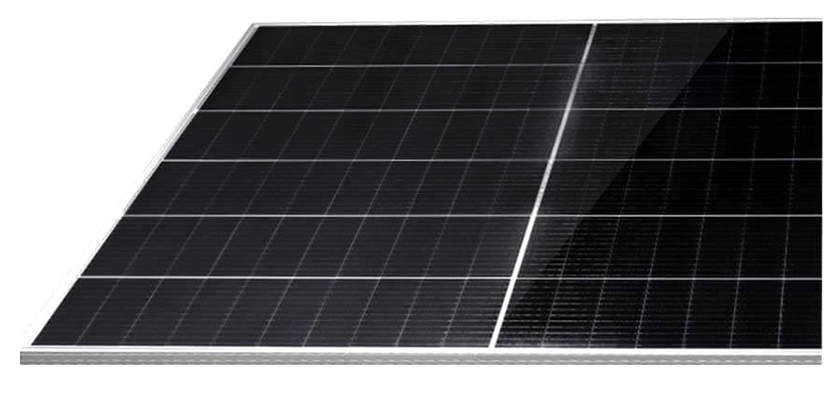
Most of the panels on the market nowadays are high quality, high efficiency monocrystalline solar PV panels. It has better quality and its cost has been reduced with the advancement of technology.
In island off-grid PV systems, there is no great limit to the power range of the PV panels, either around 400W or 600W can be chosen. The power of a PV panel represents the amount of electricity generated per hour by a single PV panel.
In an islanded system, the total power of the PV panels is related to the power consumption. It can generally be calculated according to this formula: power to be consumed per day / 3.2h (effective hours of light per day)
Solar Inverter
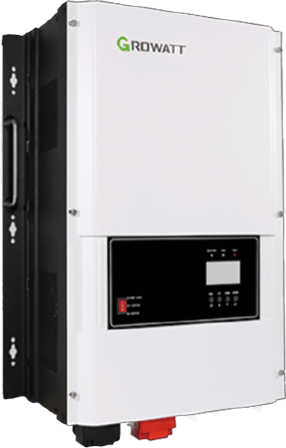
In an isolated off-grid system there is only one type of inverter and that is the off-grid inverter. The reason for this is that normally off-grid systems are located far from the grid and cannot transmit power to the grid nor can they be supplemented by mains power.
The total power of the islanding system depends on the total power of loads working at the same time. The voltage depends on the operating voltage of the appliances. Whichever specification you require we can supply.
The power of any type of PV inverter can be calculated according to this formula: total power = sum of resistive load power + sum of inductive load power X 3.
Solar Battery

In isolated off-grid systems, both gel and lithium batteries are available. For low power and limited budget, gel batteries are a good choice. For higher power, lithium batteries would be a better and more stable option.
In low power systems a 12V gel battery or a 48V/51.2V lithium battery can be used. For high power systems, we usually use 10kWh or 43kWh lithium batteries in series and parallel to control the voltage and battery capacity.
Typically, battery capacity is related to the amount of electricity used at night. In isolated off-grid PV systems, where there is no other way of obtaining power, the battery capacity needs to be increased in order to ensure normal electricity consumption.
Control Box
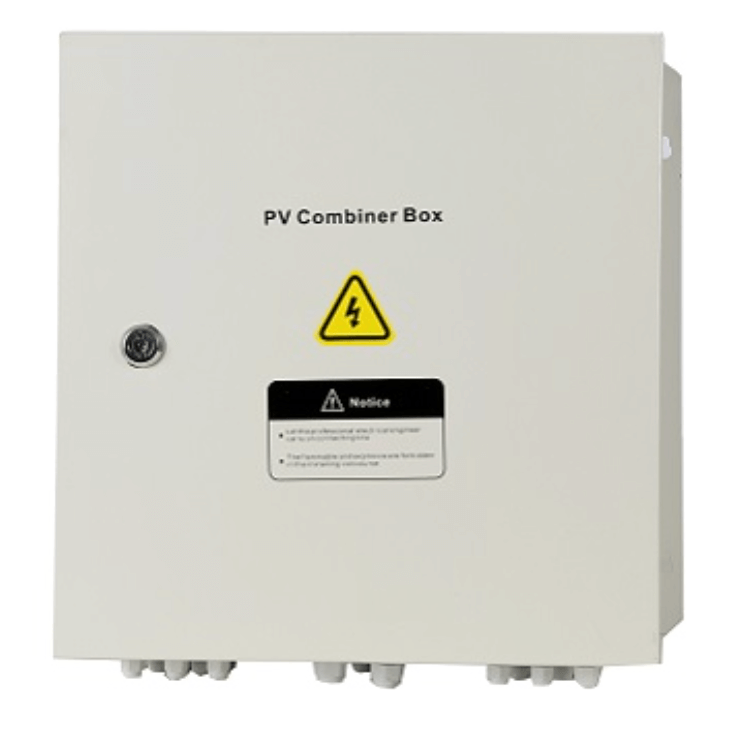
In photovoltaic systems with a large number of panels, control boxes are essential to better manage all the photovoltaic panels. Control boxes of any size can be customised.
Cable & Connecter
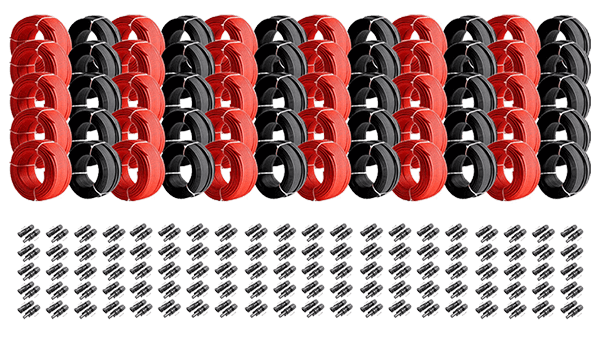
Cable runs are an essential part of a photovoltaic system. In the systems we configure for you, the cable lengths are appropriate for most installations, in case of special circumstances you can contact our sales professionals and technicians to calculate the actual required cable lengths for you.
Bracket
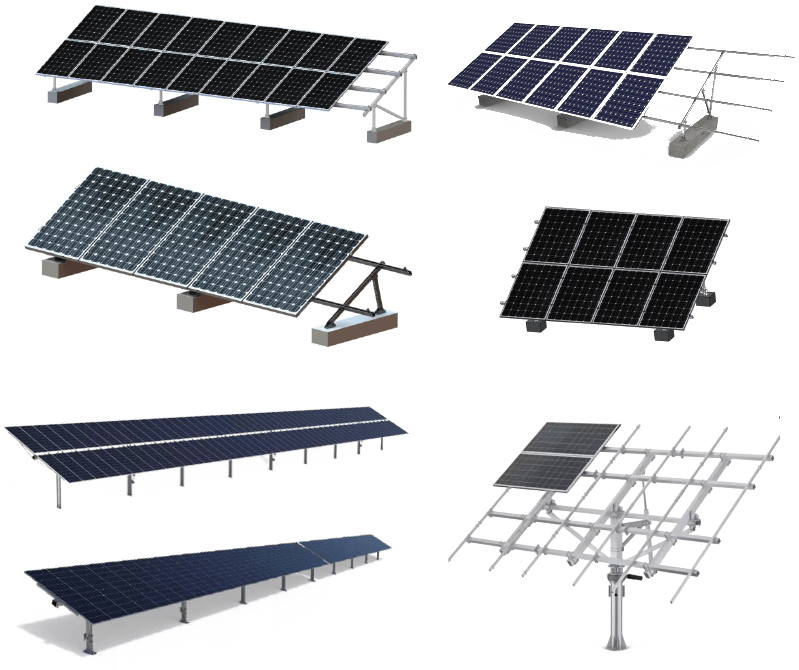
The system can be installed on the roof of the island or in an open space on the island, either way we can provide you with the best solution. In addition, we can provide you with materials that are more resistant to corrosion and increase the lifetime of your PV mounts.
Products included in the system
The following components are commonly included in island off grid photovoltaic systems,
but you can also contact our sales experts for other related products.
Solar Panel

Most of the panels on the market nowadays are high quality, high efficiency monocrystalline solar PV panels. It has better quality and its cost has been reduced with the advancement of technology.
In island off-grid PV systems, there is no great limit to the power range of the PV panels, either around 400W or 600W can be chosen. The power of a PV panel represents the amount of electricity generated per hour by a single PV panel.
In an islanded system, the total power of the PV panels is related to the power consumption. It can generally be calculated according to this formula: power to be consumed per day / 3.2h (effective hours of light per day)
Solar Inverter

In an isolated off-grid system there is only one type of inverter and that is the off-grid inverter. The reason for this is that normally off-grid systems are located far from the grid and cannot transmit power to the grid nor can they be supplemented by mains power.
The total power of the islanding system depends on the total power of loads working at the same time. The voltage depends on the operating voltage of the appliances. Whichever specification you require we can supply.
The power of any type of PV inverter can be calculated according to this formula: total power = sum of resistive load power + sum of inductive load power X 3.
Solar Battery

In isolated off-grid systems, both gel and lithium batteries are available. For low power and limited budget, gel batteries are a good choice. For higher power, lithium batteries would be a better and more stable option.
In low power systems a 12V gel battery or a 48V/51.2V lithium battery can be used. For high power systems, we usually use 10kWh or 43kWh lithium batteries in series and parallel to control the voltage and battery capacity.
Typically, battery capacity is related to the amount of electricity used at night. In isolated off-grid PV systems, where there is no other way of obtaining power, the battery capacity needs to be increased in order to ensure normal electricity consumption.
Control Box

In photovoltaic systems with a large number of panels, control boxes are essential to better manage all the photovoltaic panels. Control boxes of any size can be customised.
Cable & Connecter

Cable runs are an essential part of a photovoltaic system. In the systems we configure for you, the cable lengths are appropriate for most installations, in case of special circumstances you can contact our sales professionals and technicians to calculate the actual required cable lengths for you.
Bracket

The system can be installed on the roof of the island or in an open space on the island, either way we can provide you with the best solution. In addition, we can provide you with materials that are more resistant to corrosion and increase the lifetime of your PV mounts.
Related Solutions
Related Blogs
Grid-Forming BESS Container Europe: Crushing NC RfG 2.0 & Keeping Europe’s Lights (and Espresso Machines) On
行政2025-12-19T14:07:50+08:00December 18th, 2025|Categories: Design, News|
Electric Vessel Charging BESS Container Europe: The Grid-Saving Hero Powering Zero-Emission Maritime
行政2025-12-19T14:09:32+08:00December 18th, 2025|Categories: Design, News|
Let’s Make Things Happen
Add notice about your Privacy Policy here.
Let’s Make Things Happen
”The Maxbo team of sales consultants will continue to enrich our own expertise and experience to empower the development of sustainable energy with rigor.“
Maxbo CEO
You will need to provide: 1. the amount of electricity used. 2. the type and power of the load. 3. the electricity consumption habits (daytime/nighttime consumption). 4. the need to store electricity. 5. the need to feed electricity to the mains. 6. drawings or address of the installation site. 7. other special requirements
We can provide you with a quotation, a specification for all products, a circuit connection diagram and a diagram of the installation and placement of the PV panels. Any other requirements and adjustments needed can be discussed with our team.
We can meet the needs of most scenarios, whether your application is for domestic, commercial and industrial use, in remote areas, or for grid-level energy storage, we have experienced colleagues to design and deliver the right solution.
Add notice about your Privacy Policy here.
How much solar power do I need?
Most homes need 5–12kW, depending on your energy use and location.
Off-grid vs. grid-tied — what’s the difference?
Off-grid works without the utility grid; grid-tied lets you sell extra power back.
Do I need permits?
Usually yes — check local rules or ask us for guidance.
How long does a battery last?
Depends on size and load. A 5kWh battery can power a fridge for about 40 hours.
Can I upgrade my system later?
Yes, our systems are modular and easy to expand.
Does Maxbo offer installation?
We ship globally and connect customers with trusted local installers.




